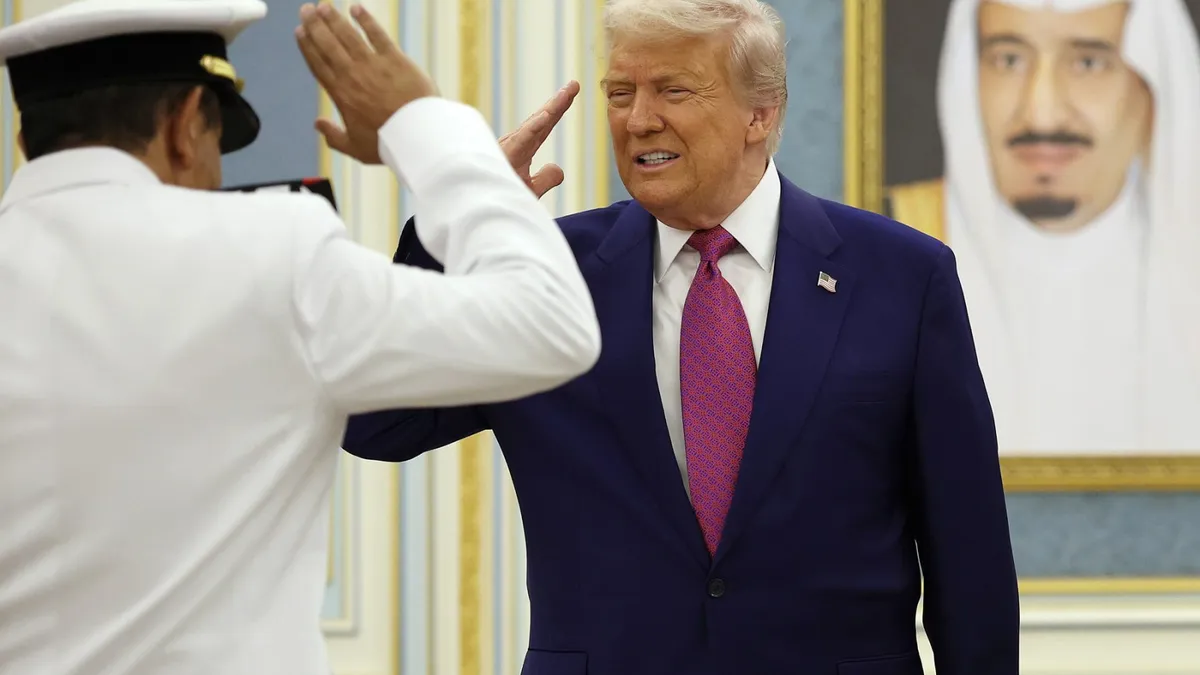
As the political landscape evolves, it’s becoming increasingly challenging for Republicans and even the most ardent supporters of Donald Trump to defend his actions as president. A recent controversy over Trump accepting a luxurious $400 million jet from Qatar has sparked significant backlash, even among some of his most loyal defenders. This situation raises questions about corruption and the implications of accepting gifts from foreign nations.
On Sunday, Laura Loomer, a far-right conspiracy theorist and steadfast Trump supporter, expressed her dismay at the news of the administration's plans to accept the extravagant jet. Loomer, who has been known to support Trump vehemently, stated on X, “I love President Trump. I would take a bullet for him. But, I have to call a spade a spade. We cannot accept a $400 million ‘gift’ from jihadists in suits.” Her comments highlight a growing concern about the ethical implications of such a significant gift.
Mark Levin, another prominent Trump supporter and Fox News commentator, echoed Loomer’s sentiments, emphasizing that accepting the plane would be “such a stain” on the administration. Similarly, right-wing commentator Ben Shapiro raised critical questions on his podcast, asking, “Is this good for President Trump? Is it good for his agenda? Is it good for draining the swamp?” He concluded that the answer is a resounding “No.”
Republican lawmakers are also voicing their unease regarding the acceptance of the Qatari jet. Sen. Rand Paul (R-Ky.) pointed out that the Constitution explicitly prohibits the president from accepting emoluments or gifts from foreign leaders without Congressional approval. He noted, “We’re not talking about a ride on the plane; we’re talking about the entire $400 million plane. I think it’s not worth the appearance of impropriety.”
Sen. Josh Hawley (R-Mo.) added that it would be preferable for Air Force One to be a "big, beautiful jet made in the United States." Meanwhile, Sen. Rick Scott (R-Fla.) expressed safety concerns, stating, “I’m not flying on a Qatari plane. They support Hamas. I don’t know how you make it safe.” Sen. Susan Collins (R-Maine) also questioned whether the administration could comply with gift laws in this case.
The concerns surrounding the acceptance of the Qatari jet are well-founded. The U.S. Constitution explicitly states that the president cannot “accept any present … of any kind whatever” from foreign states without Congress's approval. Sen. Ted Cruz (R-Texas) raised alarms about potential security risks associated with the plane, citing possible espionage and surveillance issues. He told CNBC, “I think the plane poses significant espionage and surveillance problems.”
Some Republicans, however, are sidestepping the issue altogether. John Thune, the top Republican in the Senate, and Mike Johnson, the top Republican in the House, both claimed they were unaware of the details surrounding the situation. Rep. Mike Lawler (R-N.Y.) expressed a desire for more information but affirmed that “we don’t want to be straight up accepting any type of gift from any foreign government.”
In contrast to the hesitance exhibited by some Republicans, Trump has made his stance clear—he welcomes the jet. In a press conference, he referred to the offer as “a great gesture from Qatar” and stated, “I would never be one to turn down that kind of an offer.” Trump even criticized those questioning the acceptance of the gift, labeling them as “stupid.” He likened the situation to a golf scenario, insisting that accepting a free jet is a practical decision.
Trump’s remarks during his first official international trip of his second term, where he is currently in Saudi Arabia and plans to visit Qatar, further emphasize his intent. His administration recently struck a deal to build a golf resort in Qatar, raising additional questions about the nature of foreign influence and the ethical implications of such dealings.
The acceptance of a $400 million luxury jet from Qatar has placed Trump and his supporters in a challenging position, raising significant ethical and constitutional questions. As the situation unfolds, it remains to be seen how Republicans will navigate this controversy and what impact it may have on Trump's agenda moving forward.